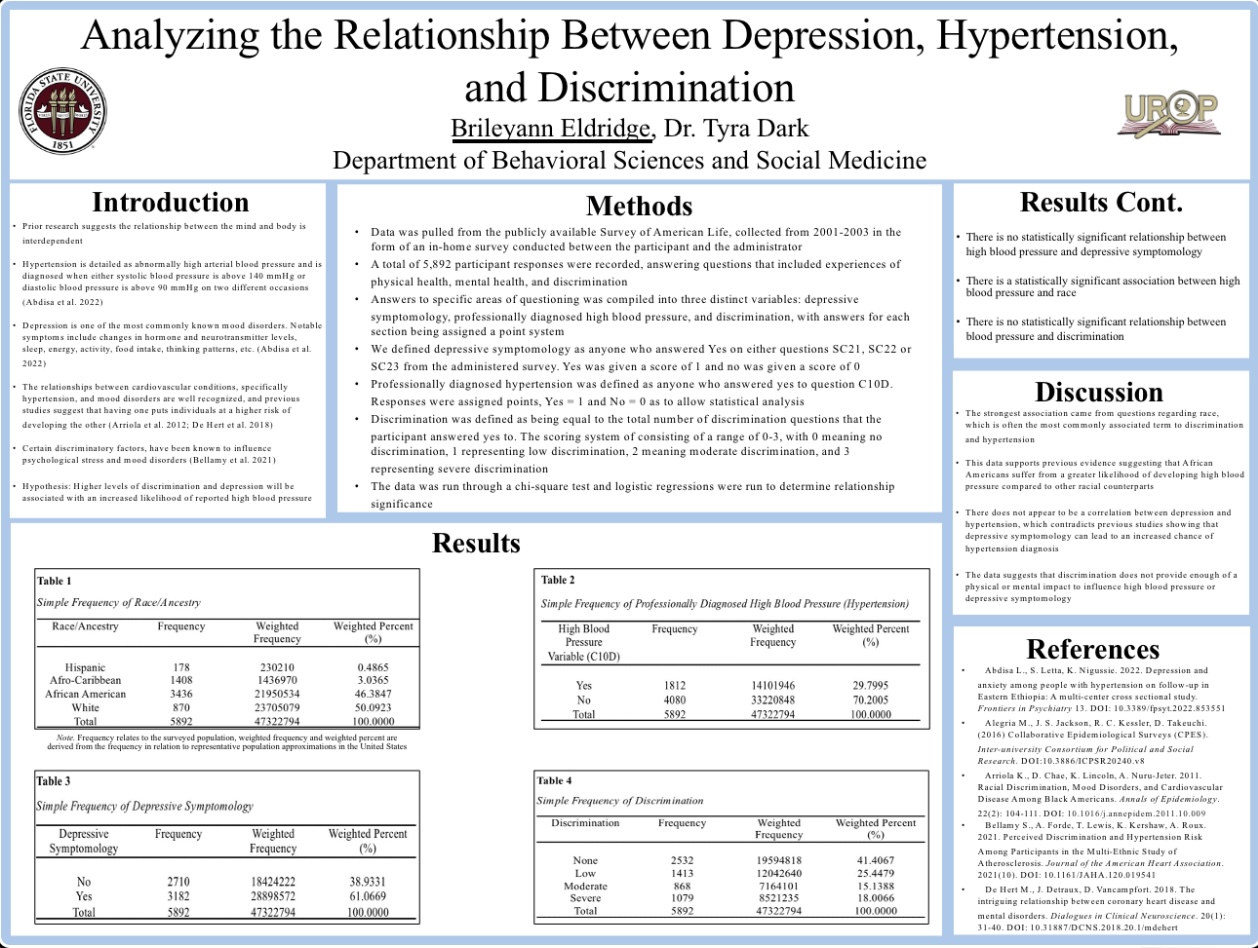Research Symposium
24th annual Undergraduate Research Symposium, April 3, 2024
Brileyann Eldridge Poster Session 4: 2:45 pm - 3:45 pm /292

BIO
I am a second-year Behavioral Neuroscience major from Inverness, Florida. I chose my field of study based on my love of Biology, Psychology, Medicine, and Anatomy. My research interests include investigating the causes and impacts of psychiatric conditions, neurocognitive conditions, brain structure and function, hormone imbalance, and nervous system impairments. My favorite part of research is hands-on data collection, which includes interacting with subjects and completing different kinds of lab work. After graduation, I hope to attend medical school, earn an MD, and possibly focus my career on Pediatrics, Family/Internal Medicine, Psychiatry, or Obstetrics and Gynecology.
Analyzing the Relationship Between Depression, Hypertension, and Discrimination
Authors: Brileyann Eldridge, Dr. Tyra DarkStudent Major: Behavioral Neuroscience
Mentor: Dr. Tyra Dark
Mentor's Department: Department of Behavioral Sciences and Social Medicine Mentor's College: Florida State University College of Medicine Co-Presenters:
Abstract
The interconnected relationship between the mind and body is one often analyzed in the fields of neuroscience and psychology, especially when it comes to how certain physical circumstances influence psychological conditions and the role of the environment. While previous studies suggest that depression leads to an increase in hypertension (high blood pressure) diagnosis, the influence of certain external factors, such as discrimination, is not often considered as impactful when compared to economic position or interpersonal relationship status. To further investigate the relationship between discrimination, depression, and hypertension, this study used data from the National Survey of American Life (NSAL). Discrimination and depressive symptomology scores were calculated for the 5,892 study participants. Bivariate analysis showed a statistically significant association between race/ethnicity and high blood pressure. There was no statistically significant relationship between discrimination and hypertension or between depressive symptomology and hypertension. A multiple logistic regression analysis tested the following model: High blood pressure = depressive symptomology + race + discrimination + (race* discrimination). The overall model was statistically significant (Chi-Square = 3.14; p<.005), demonstrating that the combination of exposure variables was predictive of high blood pressure. Additionally, race/ethnicity were shown to be statistically significant independent predictors of hypertension. Results showed that the African American population has a greater likelihood of high blood pressure compared to the non-Latino White population. The other-Hispanic population has a lower likelihood of hypertension compared to the non-Latino White population. Further analyses are required to further elucidate the reported discrimination and risk of hypertension relationship.
Keywords: Depression, Discrimination, Hypertension


